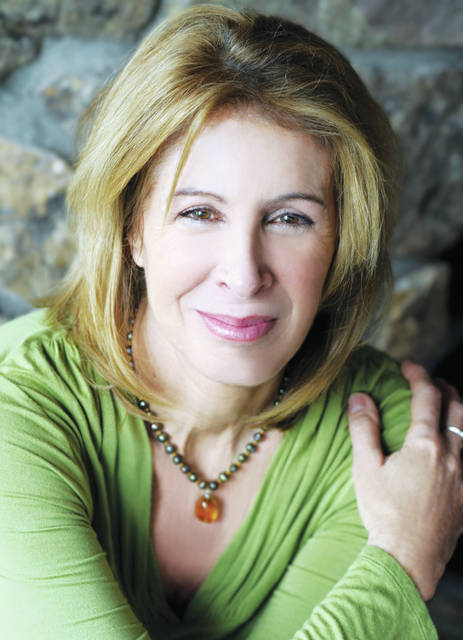
The man I married when I was 24 and divorced at 30, an entertainment celebrity, was fired recently for inappropriate behavior.
My first reaction was a pulse of schadenfreude: He was due for this. When a friend told me he’d stuck his tongue in her mouth when hugging her goodbye … I’m ashamed to admit this, but I said, “That’s just how he is.”
After I saw his photo plastered across the internet, and after that pulse of satisfaction, I felt sadness and concern. I had loved this man. We’d built our careers alongside each other, and had shared deep intimacy. He’d believed in me, in my writing. He’d consoled me when I was hurt and rooted for me — he was a fierce advocate. He had my back, although he often went behind it. He had a gift for covering his tracks by making up detailed stories that sounded so plausible and sincere that people believed them.
Confusing? You bet.
That’s because we’re dealing with the intricacies and contradictions of the heart, and with the deep and often treacherous river of sexual urges.
In the early days of the women’s movement, Nora Ephron wrote that while she campaigned for women’s rights, in her erotic fantasies, she wanted to be ravished. Another feminist, Sally Kempton, wrote in Esquire, “It’s hard to fight an enemy who has outposts in your head.”
Let me be clear: I believe that anyone who forces himself sexually on another human should be held accountable. I also believe the punishment should fit the crime. That means we need to accept that misbehavior is not black or white, but falls along a continuum. At one end is the rapist/serial predator, and at the other end is the obnoxious flirt. As of yet, the #MeToo movement has not grappled with that reality.
As Claire Berlinski writes in the American Interest, “We are on a frenzied extrajudicial warlock hunt that does not pause to parse the difference between rape and stupidity. The punishment for sexual harassment is so grave that clearly this crime — like any other serious crime — requires an unambiguous definition. We have nothing of the sort.”
This is dangerous for both genders. Men who’ve been tried in the court of public opinion — for everything from forced cunnilingus to giving an unwanted neck rub — have had their careers and lives destroyed. Women who’ve come forward are risking a backlash that is sure to come. Dave Chappelle warns, in a comedy special, “You got all the bad guys scared, and that’s good. But the minute they’re not scared anymore, it will get worse than it was before. Fear does not make lasting peace.”
Do we want to move toward a society where men are scared to be alone with a woman at the office? A society where women who’d like men to be assertive in the bedroom find themselves with partners who are afraid to take that role?
How, then, are we to proceed in the post-Harvey Weinstein era? What troubles me is that in the current climate, to be accused is to be condemned. There is no due process.
What if we could set up the kind of truth and reconciliation process that helped people in South Africa and Ireland move forward after prolonged violence? Victims gave testimony and perpetrators could also give testimony and request amnesty from prosecution. Consideration was given to the weight of the crimes committed. “Restorative justice” was the goal.
Even before #MeToo, individuals have tried to handle sex crimes privately. In 2016, Thordis Elva from Iceland and Tom Stranger from Australia gave a talk at Ted Women, “Our Story of Rape and Reconciliation.” They’d met at age 16, when Stranger was an exchange student in Iceland. At a party, Elva had too much to drink, grew nauseous and faded in and out of consciousness. Stranger took her home, removed her clothes, put her in her bed and penetrated her. She was too weak to resist and recalls it as painful and traumatic. She did not speak to him again, and, humiliated, told no one.
Nine years later, she wrote him a letter, he answered, and they agreed to meet in Cape Town, South Africa.
At first, Elva wanted revenge, “to hurt Tom as badly as he’d hurt me. When the plane landed, I thought, why didn’t I just get myself a therapist and a bottle of vodka, like a normal person?”
For a week, they told each other their life stories. The ground rules were that they had to be honest, listen to the other with open minds, and stick out the week.
“At times our search for understanding felt impossible,” Elva said, but by the week’s end, they had a “victorious feeling.” Stranger said, “I had to accept that I did hurt this wonderful person.”
In this country, healing might begin with a forward-thinking industry or community setting up a truth and reconciliation commission. Accuser and accused could speak to each other, with mediators present. If the commission concluded that a man had caused harm, he could make amends.
Would such a process have been effective with my ex-husband? Would he have agreed to participate? I can’t say, as he’s not making public statements now, and there’s been no disclosure of the specific accusations that led to his firing.
What I can say is that we need to acknowledge and define the different degrees of sexual harassment, and work on finding ways to bring about restorative justice.


